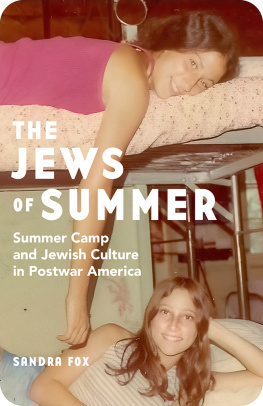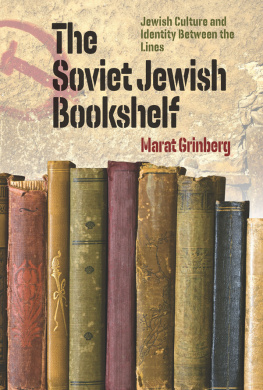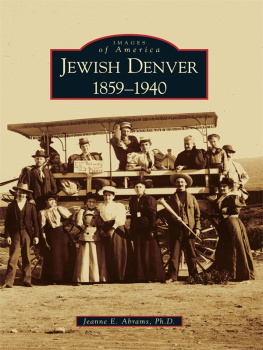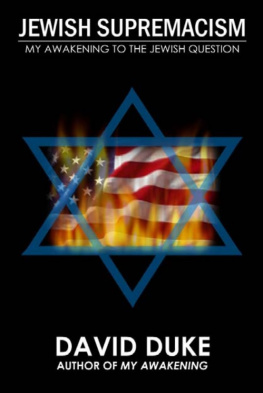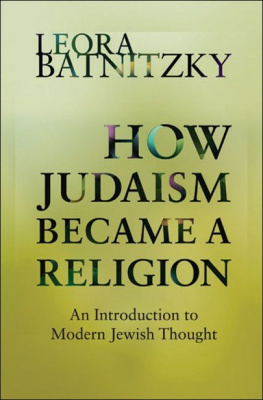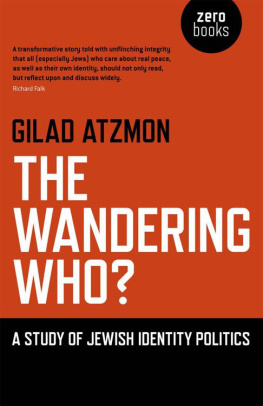STANFORD STUDIES IN JEWISH HISTORY AND CULTURE
Edited by David Biale and Sarah Abrevaya Stein
THE JEWS OF SUMMER
SUMMER CAMP AND JEWISH CULTURE IN POSTWAR AMERICA
SANDRA FOX
STANFORD UNIVERSITY PRESS
Stanford, California
Stanford University Press
Stanford, California
2023 by Sandra Felicia Fox. All rights reserved.
No part of this book may be reproduced or transmitted in any form or by any means, electronic or mechanical, including photocopying and recording, or in any information storage or retrieval system without the prior written permission of Stanford University Press.
Printed in the United States of America on acid-free, archival-quality paper
Library of Congress Cataloging-in-Publication Data
Names: Fox, Sandra, 1988- author.
Title: The Jews of summer : summer camp and Jewish culture in postwar America / Sandra Fox.
Other titles: Stanford studies in Jewish history and culture.
Description: Stanford, California : Stanford University Press, 2023. | Series: Stanford studies in Jewish history and culture | Includes bibliographical references and index.
Identifiers: LCCN 2022019302 (print) | LCCN 2022019303 (ebook) | ISBN 9781503632936 (cloth) | ISBN 9781503633889 (paperback) | ISBN 9781503633896 (ebook)
Subjects: LCSH: Jewish campsUnited StatesHistory20th century. | Jewish youthRecreationUnited StatesHistory20th century. | JewsUnited StatesSocial life and customs20th century. | United StatesSocial life and customs1945-1970. | United StatesSocial life and customs1971
Classification: LCC BM135 .F69 2023 (print) | LCC BM135 (ebook) | DDC 796.54/22dc23/eng/20220608
LC record available at https://lccn.loc.gov/2022019302
LC ebook record available at https://lccn.loc.gov/2022019303
Typeset by Elliott Beard in Garamond Premier Pro 11/15
Cover design by Gia Giasullo
Cover photograph: Beth and Sharon, Camp Boiberik, 1973. Photographer unknown.
To Grandma, with love
Contents
Acknowledgments
IT IS NOT LOST ON me, a historian who thinks a lot about age, that working on this project carried me through a period psychologists call emerging adulthood, anchoring me through a number of big life moments. Over that time, I have been honored to be in conversation with colleagues, mentors, and friends of many generations, absorbing their wisdom and sustained by their warmth and kindness. I am moved to have a formal opportunity to acknowledge them.
I began to undertake the research on which this book is based at New York Universitys Skirball Department of Hebrew and Judaic Studies, where I received support from the Graduate School of Arts and Sciences, the Goldstein-Goren Center for American Jewish History, the Taub Center for Israel Studies, and the Graduate Research Initiative. Additional research grants from the American Jewish Archives, the Association for Jewish Studies, and the Ben-Gurion Research Institute for the Study of Israel and Zionism helped make my research possible during my graduate work and in the year immediately after. Most significant, the Jim Joseph Postdoctoral Fellowship at Stanford University ensured that I had the time and resources to complete this book. I am forever grateful to all the committees and individuals who selected me and this project for these fellowships.
Many archivists and librarians patiently assisted me throughout the years, including Ilya Slavutskiy, Melanie Meyers, Sara Belasco, and many others at the Center for Jewish History. I am also thankful to Dana Herman at the American Jewish Archives, Ina Cohen and Rabbi Jerry Schwarzbard at the Jewish Theological Seminary, Shulamith Berger at the Yeshiva University Library, and the staff at the Tamiment Library at NYU. I wholeheartedly thank my editor, Margo Irvin, and the entire team at Stanford University Press for believing in this book and for shepherding it through the publishing process with the utmost professionalism.
Dozens of former campers supplied me with camp photographs, documents, and memories, and answered clarification questions I posed on alumni Facebook groups when archival documents did not suffice. I thank each of them for their openness and willingness to help. Their recollections and contributions bettered this book in every way.
While the pandemic got in the way of my spending much time in Palo Alto, I treasure the time I spent as a postdoctoral fellow within Stanford Universitys Concentration in Education and Jewish Studies and thank Ari Kelman for being such a staunch supporter of me and my work. I am so grateful to Jonathan Zimmerman, whose perspective as a historian of education and his generous feedback during the early phases of this project deeply shaped the final product. Ofer Shiff supported me through my first year after graduate school as a postdoctoral fellow at Ben-Gurion University and has remained a friend and mentor in the years since. I cannot thank him enough for his support and for all the meaningful conversations we had on trips back and forth to Sde Boker.
Having attended graduate school a mere eight city blocks away from my undergraduate institution, I have remained in regular contact with many of my professors from Eugene Lang College, the New School for Liberal Arts, whose style of learning and commitment to questioning is in the very DNA of this book. Val Vinokur, Jeremy Varon, and Oz Frankel have continued to offer me astounding professional guidance, mentorship, and friendship in the eleven years since my graduation, and I am eternally grateful to all three for their support and generosity.
I have been lucky to have a wider community of fellow historians, interlocutors, and readers of my work, including Shari Rabin, Elia Etkin, Beny Hary, Melissa Klapper, Geoffrey Levin, Shayna Weiss, Noah Efron, Matthew Berkman, Joshua Friedman, Rachel Kranson, Laura Levitt, Rachel Gross, Liora Halperin, Dekel Canetti, and Sasha Senderovitch. Thank you all for your support and friendship over the years. I am also grateful for my Yiddish family, including my fellow editors at In geveb: A Journal of Yiddish Studies; the listeners, supporters, and participants of Vaybertaytsh: A Feminist Podcast in Yiddish; and the many teachers and friends who made my Yiddish voice possible: Gennady Estraikh, Naftali Ejdelman, Yankl-Peretz Blum, Rivke Galpern, Miriam Trinh, and Eliezer Niborksi.
Of all my mentors and supporters, I am most thankful to Hasia Diner. Hasia always goes above and beyond the call of duty when it comes to supporting me. A brilliant historian and a thoughtful, honest, and exacting critic, she remains my most important reader, as well as my fiercest advocate. Her voice, wisdom, and commitment to scholarly integrity guided me through every stage of this project. I can only hope that the final product does justice to her belief in me as a scholar and as a human being.
My friends are my family, and it takes a lot of restraint not to list every one of them. I am beyond grateful for my relationships with Hannah Grossman and Reuben Karchem, who kept me sane and smiling through all the years of research and writing. Beginning as camp friends, we have been fortunate to be neighbors over the past several years, nurturing our childhood friendships into adulthood. Hannahs commitment and approaches to experiential Jewish education inspire me and undeniably shaped how I thought about the Jewish educators I wrote about in this book. I am proud to be her friend. I am overwhelmed by appreciation for another camp friend, Shifra Whiteman, who introduced me to the possibility of a Yiddish-speaking life when I was only a kid in her house in Queens.

